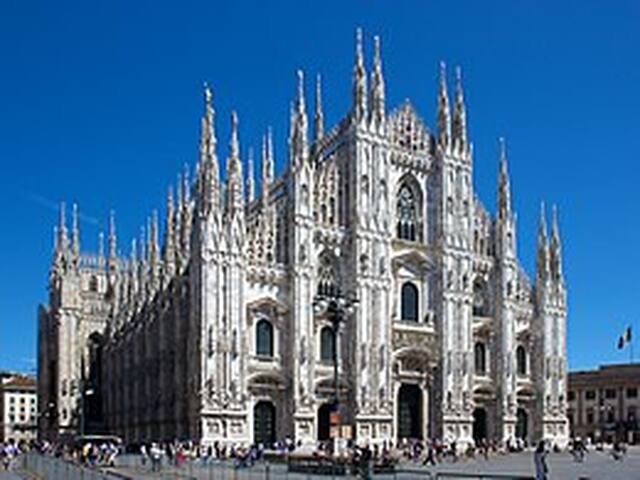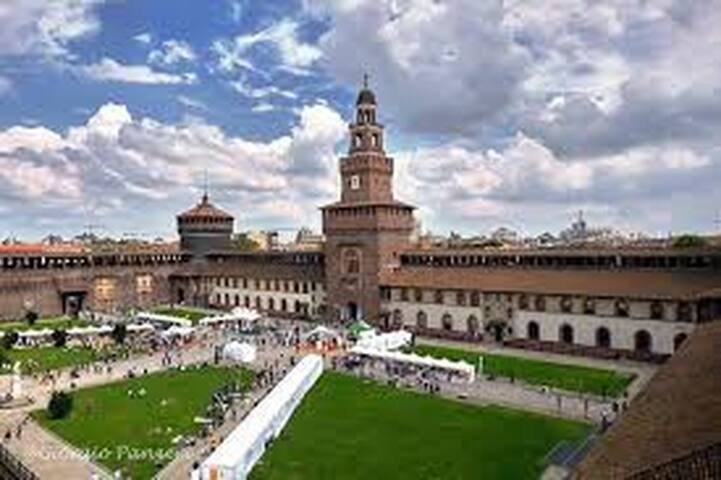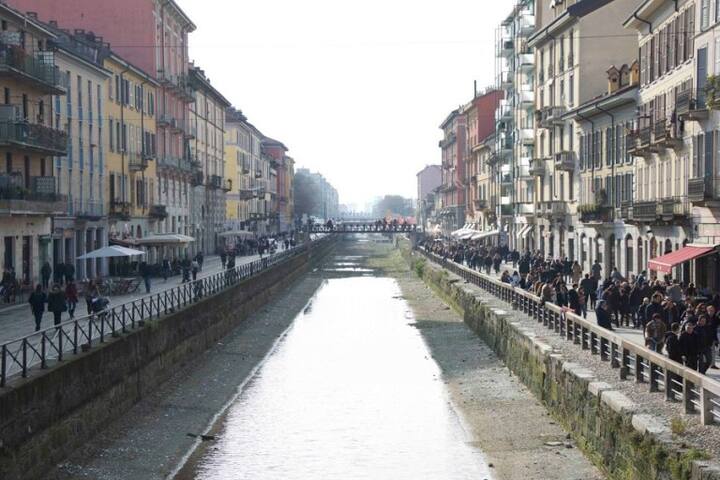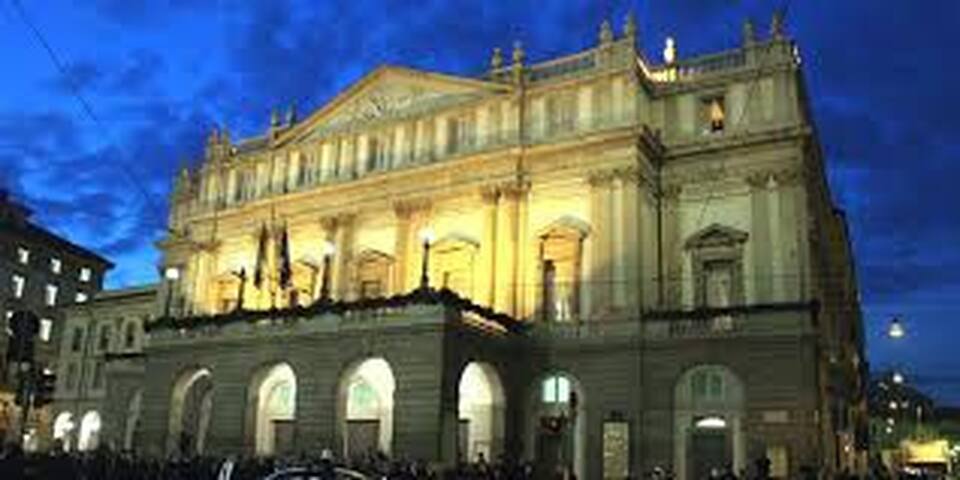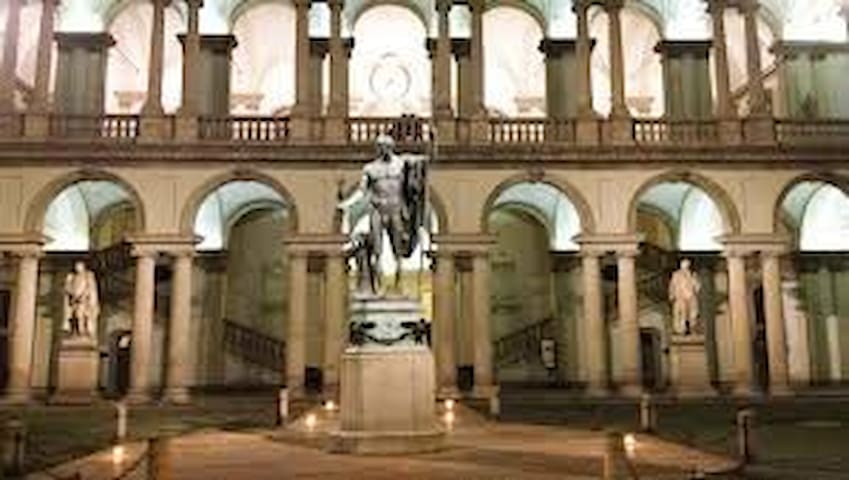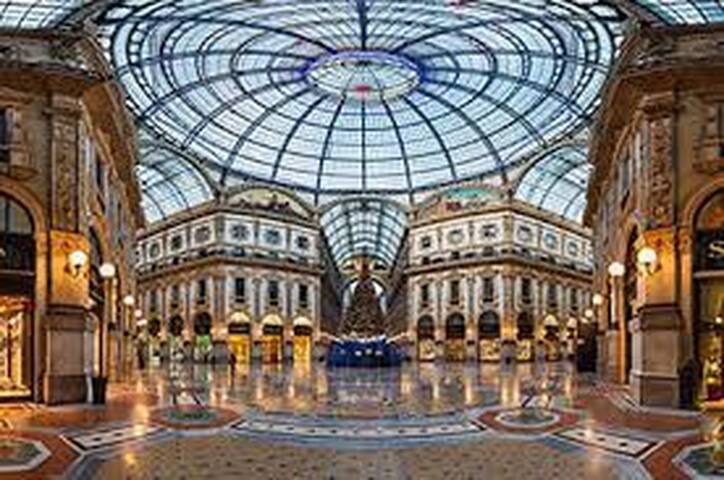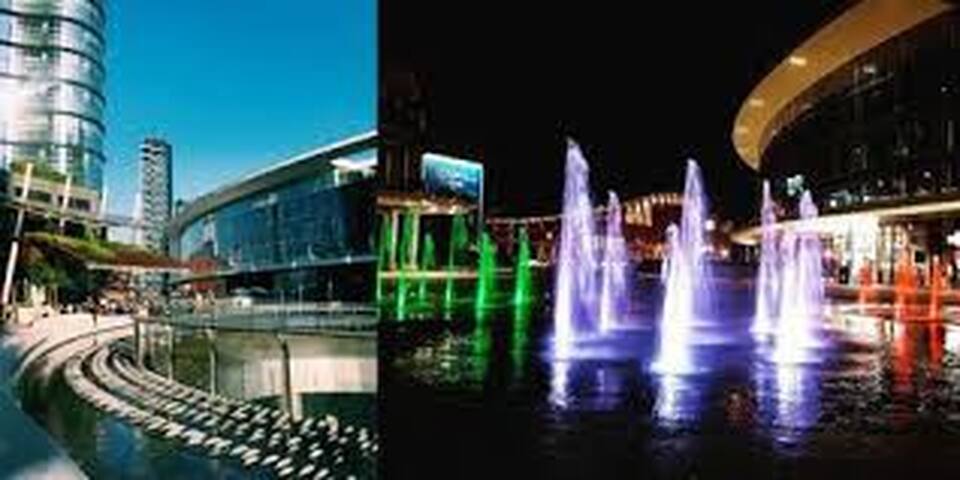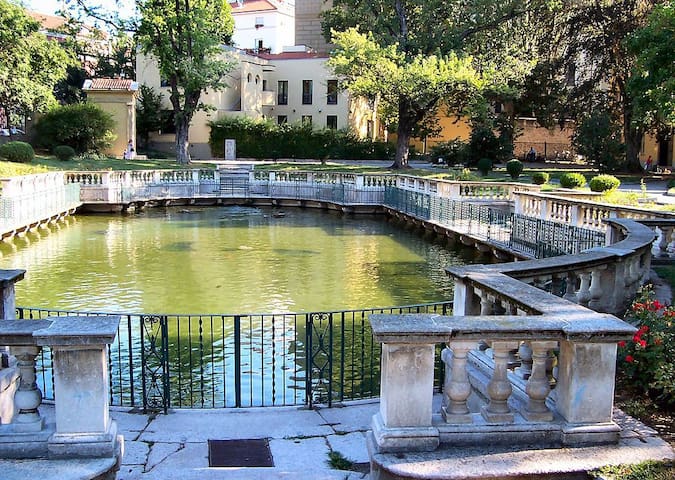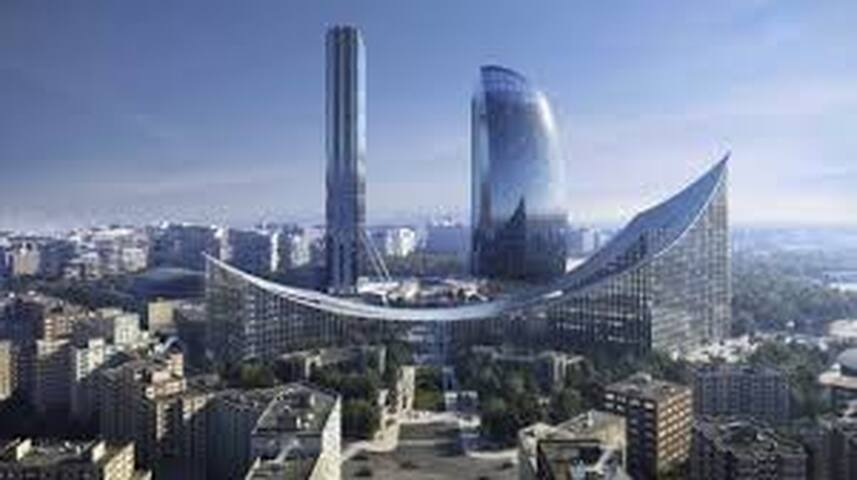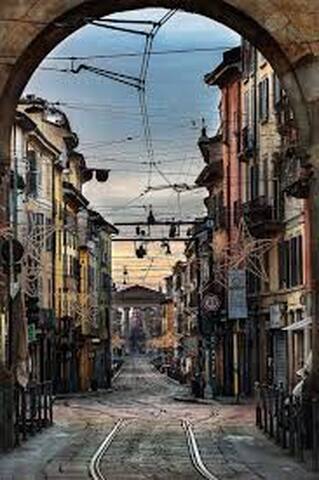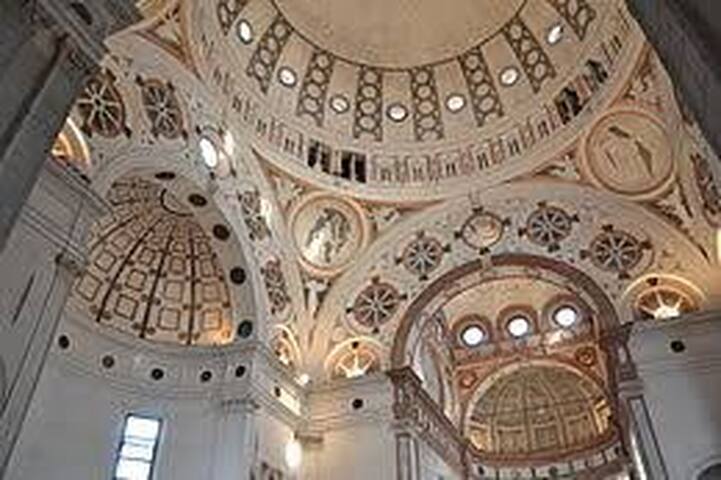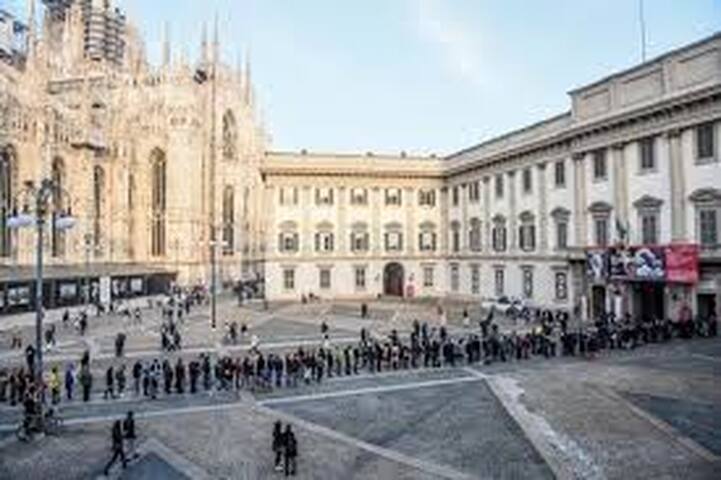Visite turistiche
두오모광장
Piazza del DuomoSforzesco Castle
Piazza Castello나빌리오 그란데
스칼라좌
2 Via FilodrammaticiThe Pinacoteca di Brera ("Brera Art Gallery") is the main public gallery for paintings in Milan, Italy. It contains one of the foremost collections of Italian paintings, an outgrowth of the cultural program of the Brera Academy, which shares the site in the Palazzo Brera.
Via Brera
Via BreraThe Pinacoteca di Brera ("Brera Art Gallery") is the main public gallery for paintings in Milan, Italy. It contains one of the foremost collections of Italian paintings, an outgrowth of the cultural program of the Brera Academy, which shares the site in the Palazzo Brera.
Le Guide ai Quartieri
Brera is a district ("quartiere") of Milan, Italy. It is located within the Zone 1 (the historical core of the city) and it is centered on Brera street. The name stems from Medieval Italian "braida" or "brera", derived from Old Lombardic "brayda" (often Latinized as "praedium"), meaning a land expanse either cleared of trees or naturally lacking them. This is because around the year 900, the Brera district was situated just outside Milan's city walls and was kept clear for military reasons. The root of the word is the same as that of the Dutch city of Breda's name and the English word "broad".
Brera houses the Brera Academy of Fine Arts and the Brera Art Gallery, which prominently contributed to the development of Brera as an artists' neighborhood and a place of bohemian atmosphere, sometimes referred to as "the milanese Montmartre".[1] Both the Academy and the Gallery are located in Palazzo Brera, the main historical building of the area; this same building also houses Milan's botanical garden as well as an astronomical observatory and the Braidense National Library. Other features that contribute to the character of Brera include restaurants, bars, night clubs, antique and art shops, colorful street markets, as well as fortune tellers' booths. (https://en.wikipedia.org/wiki/Brera_(district_of_Milan))
756 명의 현지인이 추천하는 곳
Brera
Brera is a district ("quartiere") of Milan, Italy. It is located within the Zone 1 (the historical core of the city) and it is centered on Brera street. The name stems from Medieval Italian "braida" or "brera", derived from Old Lombardic "brayda" (often Latinized as "praedium"), meaning a land expanse either cleared of trees or naturally lacking them. This is because around the year 900, the Brera district was situated just outside Milan's city walls and was kept clear for military reasons. The root of the word is the same as that of the Dutch city of Breda's name and the English word "broad".
Brera houses the Brera Academy of Fine Arts and the Brera Art Gallery, which prominently contributed to the development of Brera as an artists' neighborhood and a place of bohemian atmosphere, sometimes referred to as "the milanese Montmartre".[1] Both the Academy and the Gallery are located in Palazzo Brera, the main historical building of the area; this same building also houses Milan's botanical garden as well as an astronomical observatory and the Braidense National Library. Other features that contribute to the character of Brera include restaurants, bars, night clubs, antique and art shops, colorful street markets, as well as fortune tellers' booths. (https://en.wikipedia.org/wiki/Brera_(district_of_Milan))
The Galleria Vittorio Emanuele II (Italian: [ɡalleˈriːa vitˈtɔːrjo emanuˈɛːle seˈkondo]) is Italy's oldest active shopping mall and a major landmark of Milan, Italy. Housed within a four-story double arcade in the center of town,[1] the Galleria is named after Victor Emmanuel II, the first king of the Kingdom of Italy. It was designed in 1861 and built by architect Giuseppe Mengoni between 1865 and 1867.
230 명의 현지인이 추천하는 곳
Corso Vittorio Emanuele II
The Galleria Vittorio Emanuele II (Italian: [ɡalleˈriːa vitˈtɔːrjo emanuˈɛːle seˈkondo]) is Italy's oldest active shopping mall and a major landmark of Milan, Italy. Housed within a four-story double arcade in the center of town,[1] the Galleria is named after Victor Emmanuel II, the first king of the Kingdom of Italy. It was designed in 1861 and built by architect Giuseppe Mengoni between 1865 and 1867.
Piazza Gae Aulenti è una piazza circolare sopraelevata, di 100 metri di diametro situata nel Centro Direzionale di Milano. Rialzata di 6 metri rispetto al livello della strada, è stata progettata dall'architetto argentino César Pelli[1] a completamento delle omonime torri, attualmente di proprietà del fondo Immobiliare Porta Nuova Garibaldi e concesse in locazione a diverse multinazionali
751 명의 현지인이 추천하는 곳
피아차 가에 아울렌티
1785 Piazza Gae AulentiPiazza Gae Aulenti è una piazza circolare sopraelevata, di 100 metri di diametro situata nel Centro Direzionale di Milano. Rialzata di 6 metri rispetto al livello della strada, è stata progettata dall'architetto argentino César Pelli[1] a completamento delle omonime torri, attualmente di proprietà del fondo Immobiliare Porta Nuova Garibaldi e concesse in locazione a diverse multinazionali
I giardini della Guastalla sono un parco di Milano. Affacciati su via Francesco Sforza, di fronte all'Università Statale di Milano e a fianco dell'Ospedale Maggiore, sono tra i meno estesi (solo 12.000 m2 di superficie), ma anche alcuni fra i più antichi giardini pubblici di Milano.
21 명의 현지인이 추천하는 곳
Guastalla
I giardini della Guastalla sono un parco di Milano. Affacciati su via Francesco Sforza, di fronte all'Università Statale di Milano e a fianco dell'Ospedale Maggiore, sono tra i meno estesi (solo 12.000 m2 di superficie), ma anche alcuni fra i più antichi giardini pubblici di Milano.
CityLife is a residential, commercial and business district under construction situated a short distance from the old city centre of Milan, Italy; it has an area of 36.6 hectares (90 acres).
The development is being carried out by a company controlled by Generali Group, that won the international tender for the redevelopment of the historic neighborhood of Fiera Milano with an offer of €523 million. The project is designed by famous architects Zaha Hadid, Arata Isozaki and Daniel Libeskind.
270 명의 현지인이 추천하는 곳
City Life
CityLife is a residential, commercial and business district under construction situated a short distance from the old city centre of Milan, Italy; it has an area of 36.6 hectares (90 acres).
The development is being carried out by a company controlled by Generali Group, that won the international tender for the redevelopment of the historic neighborhood of Fiera Milano with an offer of €523 million. The project is designed by famous architects Zaha Hadid, Arata Isozaki and Daniel Libeskind.
Porta Genova is a neighborhood ("quartiere") of Milan, Italy, located within the Zone 6 administrative division. The name "Porta Genova" means "Genoa gate"; the district is named after a city gate of the old Spanish Walls of Milan, namely that leading to Genoa, that used to be in what is now Piazza Cantore. The only remnants of the old gate are the small buildings that used to house the customs offices, which replaced the Spanish gate in the 19th Century.
26 명의 현지인이 추천하는 곳
Porta Genova
Porta Genova is a neighborhood ("quartiere") of Milan, Italy, located within the Zone 6 administrative division. The name "Porta Genova" means "Genoa gate"; the district is named after a city gate of the old Spanish Walls of Milan, namely that leading to Genoa, that used to be in what is now Piazza Cantore. The only remnants of the old gate are the small buildings that used to house the customs offices, which replaced the Spanish gate in the 19th Century.
Corso di Porta Ticinese
Corso di Porta TicineseChinatown
Chinatown
Santa Maria delle Grazie ("Holy Mary of Grace") is a church and Dominican convent in Milan, northern Italy, and a UNESCO World Heritage Site. The church contains the mural of The Last Supper by Leonardo da Vinci, which is in the refectory of the convent.
Piazza di Santa Maria delle Grazie
Piazza di Santa Maria delle GrazieSanta Maria delle Grazie ("Holy Mary of Grace") is a church and Dominican convent in Milan, northern Italy, and a UNESCO World Heritage Site. The church contains the mural of The Last Supper by Leonardo da Vinci, which is in the refectory of the convent.
The Royal Palace of Milan (Italian: Palazzo Reale di Milano) was the seat of government in the Italian city of Milan for many centuries. Today, it serves as a cultural center and it is home to international art exhibitions. It spans through an area of 7,000 square meters and it regularly hosts modern and contemporary art works and famous collections in cooperation with notable museums and cultural institutions from across the world.[1] More than 1,500 masterpieces are on display annually.
Via Palazzo Reale
Via Palazzo RealeThe Royal Palace of Milan (Italian: Palazzo Reale di Milano) was the seat of government in the Italian city of Milan for many centuries. Today, it serves as a cultural center and it is home to international art exhibitions. It spans through an area of 7,000 square meters and it regularly hosts modern and contemporary art works and famous collections in cooperation with notable museums and cultural institutions from across the world.[1] More than 1,500 masterpieces are on display annually.

